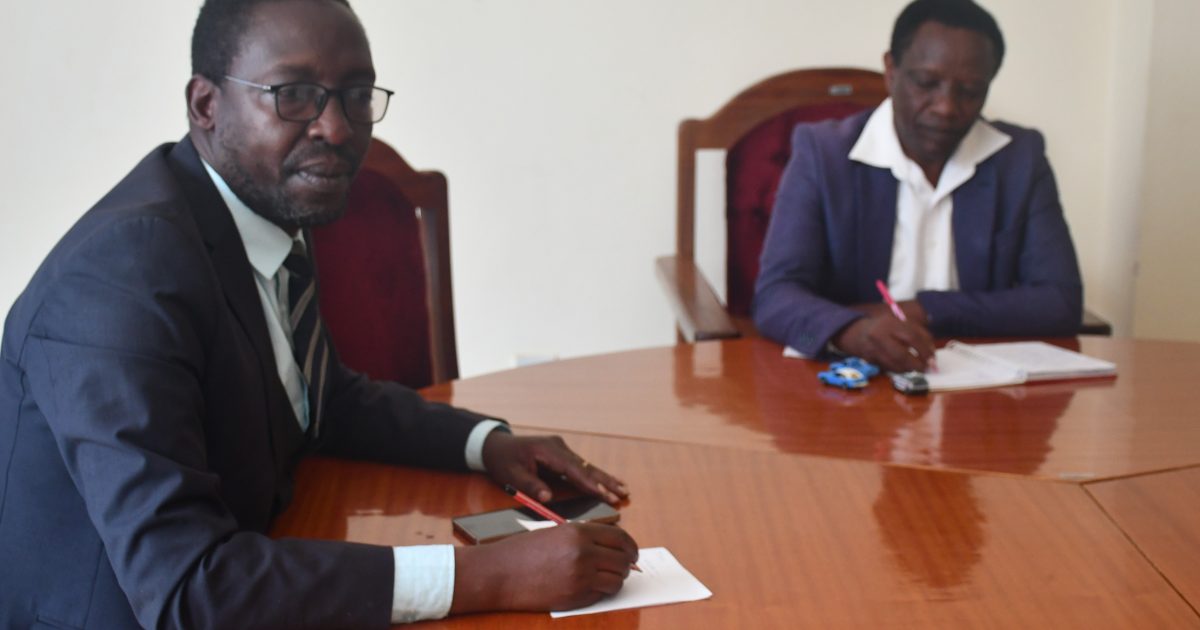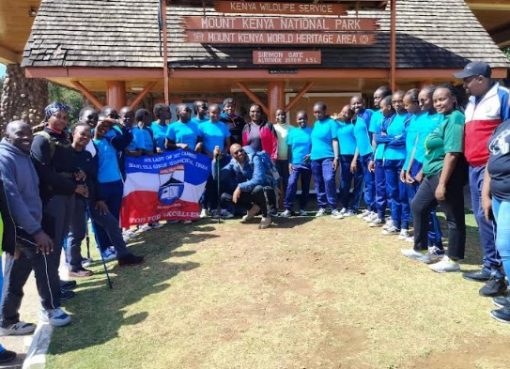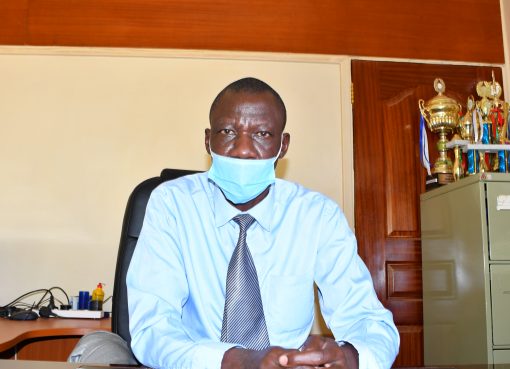The Kiambu educational program has embarked on an ambitious mission to transform the educational landscape by addressing fundamental challenges in primary and secondary schools.
This initiative aims to create a comprehensive educational environment that fosters learning and personal growth among students. The program recognizes the need to improve foundational education in primary schools.
Many schools, especially those established post-independence, have not undergone renovations, leading to unsafe and unsanitary conditions for learners and the initiative will prioritised upgrading these schools, implementing essential features such as fencing to secure the premises and creating a safer environment for learning.
Some of the schools upgraded include, Kiambu Primary School, Machiri, Kongo, Chief Wandie, Kiuu River, Benson Njau, Ting’ang’a Model, Thindigua and Kangoya.
Speaking to KNA, Joseph Karanja, the chairman of the Constituency Development Fund (CDF), stated, “We have to make sure that the schools are secure. Fencing the perimeter of the schools and giving them a new face has been able to motivate even the students to learn.
He added that introduction of such measures has further significantly enhanced students’ attendance and overall morale.
The chairman however noted that in secondary schools, the challenges extend beyond infrastructure to include basic needs like food security.
“Many students face difficulties attending school due to hunger, despite the free education provided and to combat this, the program collaborates with local organizations to ensure students receive meals, with parents contributing a minimal fee of 2, 000 shillings per term,” Karanja said.
Additionally, Karanja said the initiative has not only improved school attendance but also facilitated a 100 percent transition rate from primary to secondary education.
He mentioned the importance of sustainability in education saying they have established kitchens to provide the meals to all the secondary schools
Recognizing the gap in technical education, Karanja said that the program has also introduced short courses designed to equip youth with practical skills and the courses are examined by the National Industrial Training Authority (NITA) which are available at the ward level and allowing students to gain valuable experience without sacrificing their current jobs.
“This initiative is about empowering the youth, ensuring no one is left behind and giving them opportunity and access to education,” he said.
Karanja mentioned that to further support primary and secondary education, the program has implemented a feeding initiative in collaboration with a non-governmental organization (NGO) called Food for Education in Kenya and it only charges parents Sh15 per meal ensuring students have access to nutritious food throughout the school day.
Additionally, the program promotes student engagement through activities such as trips to parliament and career days at local tertiary institutions, providing students with broader perspectives on their educational paths.
“Significant attention has been given to improving school facilities, addressing issues like dilapidated classrooms and poor sanitation. When you come to a clean school, the environment motivates students to learn. The renovations include installing tiles and other features that reduce the physical burdens previously placed on students,” Karanja said.
Aloysius Njoroge, Constituency Manager in this initiative said they are committed to ensure that every individual is reached in their unique way.
“This initiative offers a variety of short courses including plumbing, catering, hairdressing, and cosmetology, tailored specifically for the youth and the biggest add-on is that thanks to partnership with local colleges, many of the students do not pay fees,” he added.
Njoroge explained that they have partnered with colleges that provide teachers directly to the community and thus this kind of accessibility is essential for young people who might otherwise miss out on education opportunities due to financial constraints.
“Classes are held over the weekends, allowing students to balance their work and study commitments and with low transport costs often not exceeding sh30 shillings to further facilitate participation, making it easier for students to attend regularly,” he said.
Karanja further said that they are in the process of partnering with the Kenya Institute of Special Technology (KIST) and yielding significant results.
Many students are now completing foundational courses that prepare them for further education and training at KIST. “Some of them are graduating and are ready for transition,” he stated, highlighting the program’s effectiveness in promoting continuous learning.
Bernard Kimani, a parent in Kiambu Town Constituency, said that he couldn’t be more thrilled with the revitalization of education at community level.
“This new project has transformed our schools, improved resources, and boosted attendance through vital initiatives. It gives me hope for my children’s future and inspires us all to work together for a brighter tomorrow,” Kimani added.
By Geoffrey Muchemi





